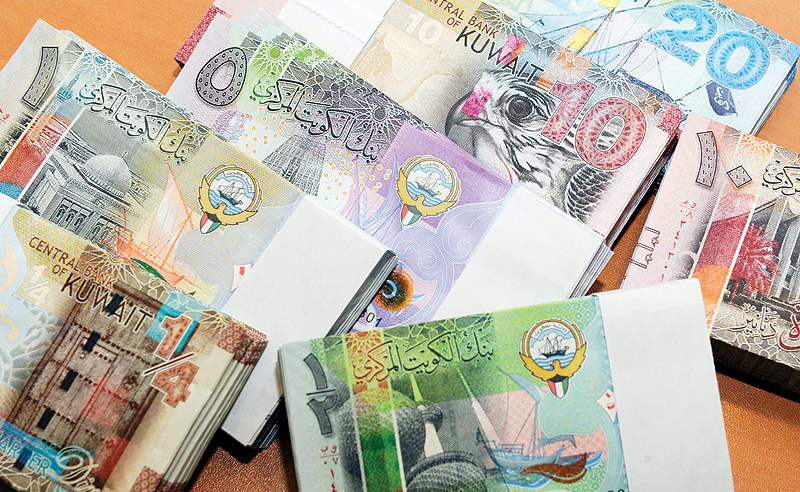'Families today spend more than KD 600 on eidiya'
KUWAIT: Millions of Muslims worldwide are preparing for Eid Al-Adha, the "festival of sacrifice". The four-day festival is one of the two main religious celebrations in Islam. Eid is a social event that has always been associated with the joy of children, where eidiya (a gift of money to younger relatives) is the main concern for them on Eid.
The origin of eidiya goes back to the Fatimid Caliphate. The term "eidiya" is an Arabic word, which means to give. The tradition dates back to the Mamluk era. On Eid, the Mamluk sultanate paid an extra amount of gold or silver coins to his soldiers, princes and those who worked with him as a gift, which was called "jamekia".
In the Ottoman era, eidiya took other forms, like offering money and gifts to children. This tradition has continued to the modern ages, but has undergone a major change. Kuwait Times spoke with old and young people to learn more.
Ghada Ali, 49, said as a child, she received KD 1 in eidyia. "One dinar was considered a big amount of money at that time. When I got older, it increased to KD 2.5, which was something huge. We badly waited for Eid, and when it passed, we eagerly waited for the next one," she said. Ali used to sleep next to her new clothes, preparing herself mentally to go to places that people only visit on Eid. "The new generation nowadays does not do that anymore. They have new clothes all the time, going to all the places whenever they want. This made them lose the pleasure of experiencing the joy of waiting and preparing for Eid," she said.
She added families today are spending more than KD 600 on eidiya, noting: "We prepared for Eid before to see the joy of children. But it is extreme now - children receive a big amount of money and you cannot give them KD 2, which is the price of a meal."
For Abdulwahab Hussam, 15, eidiya is money given as a reward by elder people to children to encourage them to do good deeds. "My eidiya is KD 20. My expectation is that hopefully it will reach KD 30 this Eid. My eidiya increased after ninth grade from KD 10 to 20." He added that the amount of money given affects his relationship with his relatives. "It is obvious - if my uncle gives me more money than others, I will love him more. Eidiya is always different from one person to another. More love, more money."
Manal Adel Safoor, 48, went back in her mind to the good old days. "Back in time in Syria, Eid was more interesting than here. We used to go out the day before Eid with neighboring girls to clean our street and prepare for Eid all night. The new generation makes zero effort to prepare for Eid. "Our eidiya was toys that cost less than a half dinar, and if we got money, we always give it to our mothers and only got our daily allowance. Eidiya is important - if there is no eidiya, it means there is no Eid," she said.
Abdulrahman Mohammad, 16, revealed that he receives KD 30 as eidyia, hoping it reaches KD 90. "The eidiya is a part of our Islamic tradition of Eid. The amount of eidiya does not affect my relationship with my relatives," he said.
By Faten Omar



